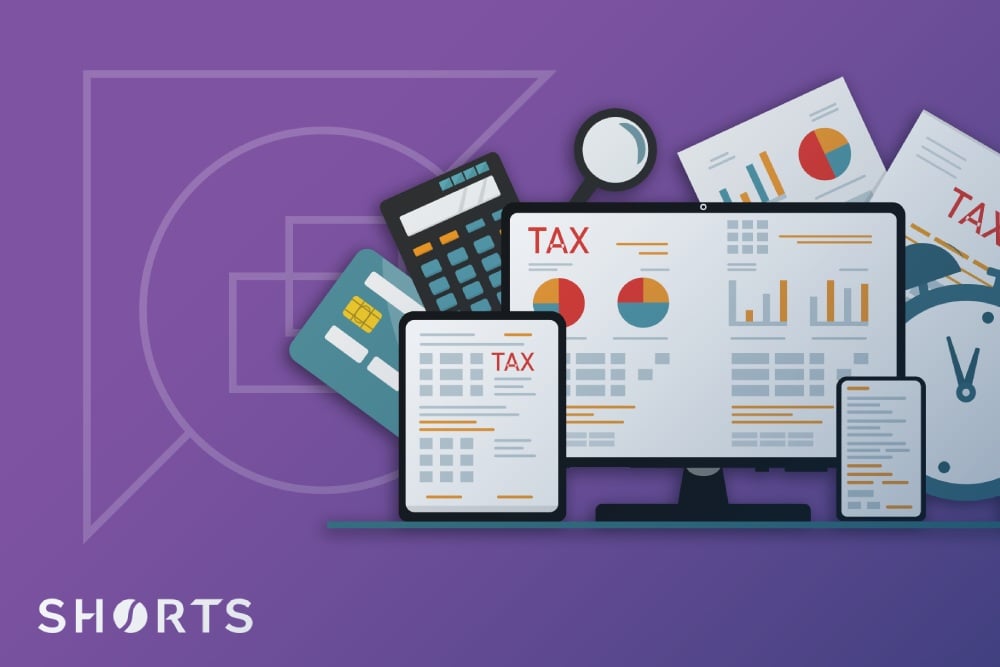
The recent increase in the UK’s Corporation Tax basic rate to 25% has added to most companies' tax burdens. More than ever, companies are seeking ways to reduce their Corporation Tax liabilities and ensure they only pay what they need.
Fortunately, there are several proven and effective strategies that you can consider to help reduce your Corporation Tax bill.
1. Capital Allowances – tax relief on depreciation of assets and equipment
Capital Allowances are the mechanism by which tax relief is obtained on the depreciation of assets and equipment. These should be maximised as far as possible, and the timing of future expenditure should be considered carefully to maximise tax savings.
Companies should optimise the use of the Annual Investment Allowance, which currently gives full tax relief in the year of acquisition of up to £1m spent on assets and equipment.
Expenditure on acquiring, upgrading or fitting out property is more complex and should be carefully reviewed to maximise potential claims. Claims are often done at a high level by less specialist accountants, with insufficient attention being paid to fully identifying and properly allocating qualifying costs.
A forensic review by a capital allowances specialist can result in significant additional tax savings.
2. Additional relief for capital expenditure
Companies (but not unincorporated businesses) can benefit from full tax relief for capital expenditure.
For most qualifying plant and machinery, companies can claim a deduction of 100% of the cost of the assets, effectively giving a tax saving of up to 25%. This relief is particularly useful for companies that fully utilise their £1m Annual Investment Allowance.
Assets that are classified as ‘special rate’ assets for capital allowances, most commonly qualifying expenditure incurred as integral features within buildings, will be entitled to a 50% claim in the year of expenditure (giving tax relief of up to 12.5%), instead of the standard 6%.
In the details, there are rules for treating sale proceeds for assets that have received this relief; also, the eligible assets must be new and unused, and there are standard exclusions for items such as cars. However, under existing rules, 100% relief can still be claimed for zero-emission cars.
When claims are made, it will be important to optimise the use of AIA for special rate assets and these first-year allowances for other eligible expenditures.
3. Claim R&D Tax Relief
R&D tax relief allows companies to claim generous tax savings for their innovative activities. The opportunities for making a claim are often overlooked, however, with business owners overestimating the level of innovation required to claim.
Projects qualifying for R&D tax relief include those seeking an appreciable improvement in science or technology
So, if a company is paying people to solve technical problems, there may be scope to claim if it is:
- Modifying a manufacturing process
- Developing bespoke software
- Creating a new product or improving an existing one
Eligible companies can obtain tax relief on qualifying expenditures by reducing taxable profits or creating (or increasing) tax losses, which can be sacrificed to HMRC in return for cash repayment.
The relief available is very generous, and an SME incurring £100k of qualifying costs could save an extra £21k in tax. Claims can go back two financial years, so first-time claimants can particularly benefit.
Large companies can claim under the RDEC scheme, which provides a 15% repayable credit after tax for every £1 spent.
4. Pay a lower Corporation Tax rate of 10% by claiming Patent Box tax relief
Patent Box Relief rewards UK companies that drive innovation and develop new patented inventions. If a company generates income from patented products or processes, it could be eligible for a lower effective CT rate of 10% on profits derived from those patents. This is less than half the normal tax rate.
Learn more about Patent Box and check your eligibility today.
5. Ensure cross-border taxes are minimised
When your company qualifies as a tax resident in two countries simultaneously or is a tax resident in one country while earning taxable income in another, a Double Taxation Agreement allows them to seek tax relief on your income and capital gains. This prevents you from facing taxation on these revenue sources twice.
Numerous Double Tax Agreements exist worldwide, and the specifics of each may differ. The Double Taxation Agreement provides two main reliefs:
- A tax refund which is processed and issued after you have been taxed.
- A tax relief (either partial or full) which is put in place before any tax is paid.
6. Pensions – use tax-free contributions to reduce Corporation Tax
Contributions to director and staff pension schemes are an extremely tax-efficient method of extracting funds from a company. They are largely tax-free in the hands of the pension scheme and are tax-deductible for the company.
Company pension contributions can be made to fully utilise a director’s annual pension contributions allowance plus any unused allowances from previous years.
Another common planning idea is to use company pension contributions to enable a pension scheme to accumulate funds to acquire commercial property – see below for further details.
7. Optimise your company/group structure
As businesses expand, they often end up with many different activities in one company or with many stand-alone companies established for each separate activity. Both can lead to tax inefficiencies. A review can be undertaken to establish the business's most tax-efficient structure, including consideration of the shareholders’ ultimate aims. Possibilities may include:
- A group structure with a holding company owning various subsidiaries - this achieves legal separation of the various activities whilst retaining the tax benefits afforded by operating within a group of companies
- Shareholders holding individual companies directly rather than using a holding company. This can sometimes be more tax efficient if an individual company may be sold.
Learn more about setting up a Holding Company
8. Offer share incentives to attract and retain key employees
For many businesses, it is important to incentivise and retain key employees to maximise business performance and align their interests with the shareholders to optimise the eventual sale price. This can be done using share options and other incentives prior to a sale.
An EMI scheme is an HMRC-approved employee share scheme. It is available to most SME trading companies. It allows employers to tax efficiently and enable key employees to acquire shares in the future that can be dependent on performance and other criteria (such as the company being sold).
The benefit of this is that the employee knows they can obtain shares in the future if they stay with the company and perform, and the business owner knows they won’t have to give up any equity unless the employee stays and performs.
These can be a useful way of allowing key employees to share in a sale of the company in a tax-efficient manner for all concerned.
9. Tax-free disposals of subsidiaries
A group of companies wishing to sell a subsidiary can sometimes use the Substantial Shareholding Exemption to sell it without any tax charges on any gain on the sale. The tax-free proceeds can then be used by the selling group to invest in other activities.
10. Extract cash in a tax-efficient way
With IT and NI rates as high as a combined 48%, it is important to regularly review the most tax-efficient way for business owners to be remunerated. There are several ways to extract value from a business, including salary, dividends, benefits, rent, interest and pension contributions.
Each carries different combined tax rates as illustrated below*
|
|
Basic rate taxpayer (%) |
Higher rate taxpayer (%) |
Additional rate taxpayer (%) |
|
Salary / Bonus |
36.7 |
49 |
53.4 |
|
Dividends |
31.6 |
50.3 |
54.5 |
|
Rents received |
20 |
40 |
45 |
|
Interest |
20 |
40 |
45 |
|
Self-employed income |
26 |
42 |
47 |
|
Pension contributions |
0 |
0 |
0 |
A review should be undertaken to ascertain the most tax-efficient mix of these income sources, considering that tax rates can change from year to year.
*The above rates are illustrative and only applicable from April 2024 and can change depending on individual circumstances, so they shouldn’t be relied on without bespoke advice being sought.
11. Optimise tax relief for losses
Tax losses can be relieved in many different ways, which vary depending upon the activity that gave rise to the losses and when they arose. For companies, there is much more flexibility in offsetting losses that have arisen since April 2017, especially for groups of companies. In some circumstances, if the losses arose from particular activities, they may be able to be surrendered for a cash payment rather than waiting to offset them against future profits.
The timing of relief is particularly important to maximise efficiency now that different rates of tax can apply to different tax years or to different companies within a group.
All companies with tax losses of any kind should, therefore, carefully review the most tax-efficient way to obtain relief for them.
12. Reinvest proceeds on the sale of business assets to defer gains
If the proceeds received on the sale of a business asset are reinvested in replacement business assets, gains arising on the sale can sometimes be deferred until the replacement asset is sold, leading to a reduction in immediate CT liabilities.
13. Receive rent from the business
Charging a company rent for assets such as properties is another tax-efficient way of extracting cash from a company. Again, advice should be sought if this is of interest because there can be other consequences to be aware of.


Scott Burkinshaw
I am Head of Business Taxes at Shorts, where I lead our specialist Radius team focusing on R&D tax relief. As a Chartered Tax Adviser with over a decade of experience at national and international firms, I work with businesses and their owners to provide strategic corporate and personal tax advice. My expertise includes R&D tax relief, business disposals and acquisitions, and long-term tax planning, helping clients achieve their goals in the most efficient way.
View my articles
